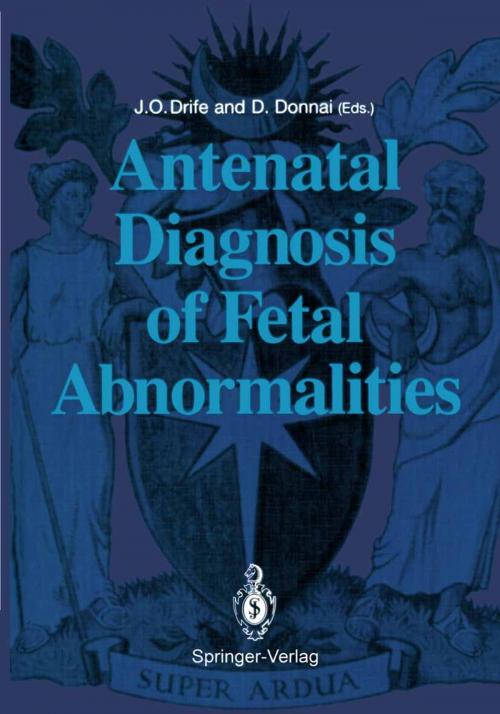Antenatal Diagnosis of Fetal Abnormalities
Nonfiction, Science & Nature, Science, Other Sciences, Molecular Biology, Health & Well Being, Medical, Specialties, Gynecology & Obstetrics| Author: | ISBN: | 9781447118541 | |
| Publisher: | Springer London | Publication: | December 6, 2012 |
| Imprint: | Springer | Language: | English |
| Author: | |
| ISBN: | 9781447118541 |
| Publisher: | Springer London |
| Publication: | December 6, 2012 |
| Imprint: | Springer |
| Language: | English |
In few areas of medicine is progress more spectacular than in the field of prenatal diagnosis. New clinical techniques such as chorion villus sampling, detailed ultrasound scanning and cordocentesis are being evaluated by obstetricians, and refinement of biochemical testing is widening the scope of maternal serum screening. In the laboratory, dramatic advances in molecular biology are occurring: families at risk of genetic disease can be investigated with gene probes, and preimplantation diagnosis of the embryo is now becom ing a reality. These technical advances have important ethical and practical implications, among which will be a further increase in public expectations of the standards required of antenatal services. Clini cians will need a high degree of skill to inform healthy women about the options for screening normal pregnancies, and to counsel high-risk women about the benefits and limitations of prenatal diagnosis. Obstetricians, scientists and health service managers will face the difficult task of deciding how prenatal diagnosis can be made available to women in a caring and cost-effective way. Recognising the rapid progress in this field, the Royal College of Obstetricians and Gynaecologists made prenatal diagnosis the subject of its 23rd Study Group. An international panel of leading researchers, whose expertise ranged from molecular biology to philosophy, was invited to participate in a three day workshop, with time for in-depth discussion as well as the presentation of papers.
In few areas of medicine is progress more spectacular than in the field of prenatal diagnosis. New clinical techniques such as chorion villus sampling, detailed ultrasound scanning and cordocentesis are being evaluated by obstetricians, and refinement of biochemical testing is widening the scope of maternal serum screening. In the laboratory, dramatic advances in molecular biology are occurring: families at risk of genetic disease can be investigated with gene probes, and preimplantation diagnosis of the embryo is now becom ing a reality. These technical advances have important ethical and practical implications, among which will be a further increase in public expectations of the standards required of antenatal services. Clini cians will need a high degree of skill to inform healthy women about the options for screening normal pregnancies, and to counsel high-risk women about the benefits and limitations of prenatal diagnosis. Obstetricians, scientists and health service managers will face the difficult task of deciding how prenatal diagnosis can be made available to women in a caring and cost-effective way. Recognising the rapid progress in this field, the Royal College of Obstetricians and Gynaecologists made prenatal diagnosis the subject of its 23rd Study Group. An international panel of leading researchers, whose expertise ranged from molecular biology to philosophy, was invited to participate in a three day workshop, with time for in-depth discussion as well as the presentation of papers.















